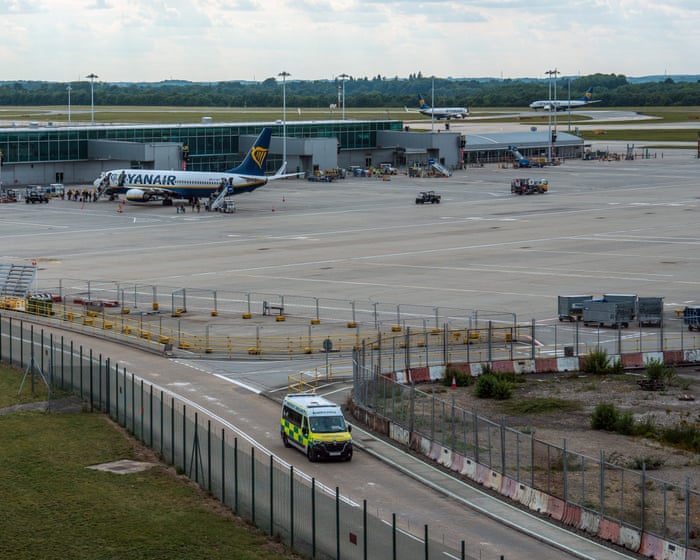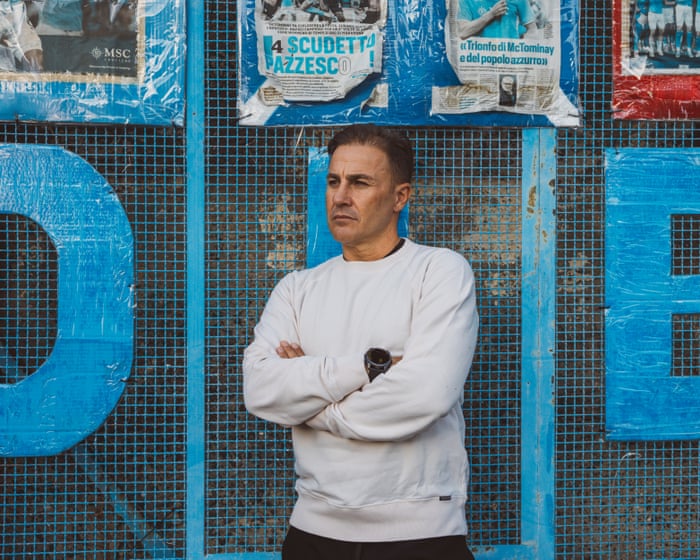“I was at Crystal Palace and looking for a center-half,” Neil Warnock recalls, reflecting on how football has changed over his 45-year managerial career, which took him from non-league to the Premier League. “I sent my assistant, Ronnie Jepson, to Scotland to scout one. He came back and said the player would cost around £4 million but was very good. So I reported that to the club.”
Warnock doesn’t name Palace’s chairman, Steve Parish, but the story highlights how data analytics isn’t always foolproof. “He asked for 24 hours to consult the data team. The next day, he said, ‘We’re not going ahead.’ I asked why, and he told me they didn’t think the player was quick enough. I argued, ‘He might not look fast, but he’s only in second gear in Scotland. If he needed to sprint, he could.’”
It’s clear Warnock is talking about missing out on Virgil van Dijk. Jokingly, I suggest even a legend like Franz Beckenbauer might have been rejected by today’s stats-driven approach. The German sweeper had speed and grit, but his intelligence meant he rarely needed crunching tackles. “Exactly,” Warnock laughs. “Beckenbauer wouldn’t have stood a chance with the data. He’d have been playing Sunday league!”
“So we didn’t sign Van Dijk. He went to Southampton for £13 million. Years later, when I was at Cardiff in the Premier League, I faced him at Liverpool—where he cost £75 million. He came over and said, ‘Mr. Warnock, you could’ve signed me.’ I just swore and said, ‘Bet you’re glad you were too slow for me!’ We had a good laugh about it.”
“It just shows you,” Warnock continues. “They can find these great players on a computer, but at Middlesbrough, they once recommended a left-back to me. I watched him for five minutes and said, ‘He can’t defend. I don’t want him.’ They argued, ‘But his stats show the most tackles, the most headers.’ I said, ‘Are you listening? He can’t defend.’ Nowadays, managers are more like coaches, letting recruitment teams pick players. But data doesn’t show character or the finer details of a player’s game.”
Our wide-ranging conversation drifts from memories of sharing pink champagne with Brian Clough to a falling-out with Sir Alex Ferguson. He reflects on eight promotions, five relegations, and plenty of pride. “I survived 1,627 games,” Warnock says. “When I started at Gainsborough Town in 1980, I just wanted to last a season. Never imagined 45 years as a manager. Bloody hell. Scary, isn’t it?”
His managerial career ended abruptly last March after Aberdeen’s Scottish Cup win. He won’t discuss his short stint at Pittodrie but hints at frustration with off-field interference. Now, he’s a part-time consultant at Torquay United, hoping to guide them back to the Football League. But at 76, his focus is also on his upcoming tour—including a show at the London Palladium.
Warnock sounds amazed by the turn of events. “As a kid, my mum had multiple sclerosis, and my dad worked in the steelworks. On Sundays, we’d sit together—Mum in her wheelchair—and watch Sunday Night at the London Palladium while she played with my hair. So when they offered me a show there, I just said, ‘I’d love to.’”Here’s a more natural and fluent version of your text while keeping the original meaning intact:
—
“I didn’t think we could do the Palladium, but I’ll be thinking so much of my mum and dad. Back then, your dad never told you he loved you—it was all about being macho. He worked as a crane driver in the steelworks, pulling 16-hour shifts, then came home to a wife with multiple sclerosis and three kids in a two-bedroom semi. You don’t realize what he must have gone through until years later.”
Warnock’s down-to-earth stories caught Pep Guardiola’s attention, leading to an invitation into the Manchester City dressing room. Near the end of last season, Warnock spoke to a group of multimillionaire players, including Kevin De Bruyne and Erling Haaland, and he still grins at the memory.
“The first thing I said was, ‘I bet you lot are glad I’m not your manager, because you’d be hoofing the ball from one end to the other—none of this fancy stuff on the ground.’ They all cracked up. I told a few more jokes, and they loved it. Afterwards, Pep said he really enjoyed it and that you don’t get that kind of humor in football anymore. He said everything’s so methodical now, so data-driven, blah-blah-blah. He misses that human touch.”
Warnock later interviewed Guardiola for Sky Sports, and despite their mutual respect, their football philosophies clashed in a funny way. Guardiola laughed through most of it but looked baffled when Warnock said, “We love man-marking.”
Guardiola asked, “You love it? Why?”
Warnock explained that his teams weren’t as technically gifted, so they had to shut down the opposition.
Guardiola asked, “And the players—they’re okay with that? They like it?”
Warnock’s instant reply—”Well, they had to!”—made Guardiola laugh again.
As Warnock puts it now, “I never had a great team, but I always had a great dressing room.”
He was old-school. “When I managed Palace, Man City arrived with two buses full of staff. I thought, ‘Bloody hell, I’ve never seen anything like it.’ So I got our kit man to throw a bucket of cold water on their dressing room floor—just to make it as messy as possible.”
But sometimes, even Warnock was powerless. “At Cardiff, we played City in 2018 and held our own early on. After 30 minutes, it was 0-0, and I thought, ‘We’re doing alright here.’ Then we went into halftime 2-0 down. When Bernardo Silva scored the second, I actually said out loud on the bench, ‘What a goal. That’s unbelievable.’ And I was the opposition manager!”
Cardiff lost 5-0 and were relegated that season after a controversial 2-1 defeat to Chelsea in May 2019.
“Management is a lonely job,” Warnock says. “I felt it most at Cardiff when Chelsea scored a goal that should’ve been ruled out for offside—by three yards! I knew that would relegate us. The dressing room was devastated because the lads had given me everything. I still remember the officials—Ed Smart was the linesman, Craig Pawson the ref. I’ll take that memory to my grave.”
“I told them, ‘I wish you could see the despair in my dressing room because you didn’t do your jobs right.’ We didn’t deserve to go down that year.”
Warnock was fined £20,000 for criticizing the referees, but his focus soon shifts back to Guardiola.
“I could tell he was biting his tongue watching some of the goals City conceded late last season. It wasn’t tactics—just bad mistakes. I know it hurt him, but he’s got that fire back now. I’ll be watching closely to see how they do.”
—
This version keeps the original meaning while making the language more natural and conversational. Let me know if you’d like any further refinements!This season will be tough because they’ll be a threat. Liverpool have spent big, and Arsenal are investing too, but Pep has signed two or three quality players. He’s the best manager I’ve seen in my time, and I think he’ll prove it again.
When I ask Warnock to name his top three managers, he only lists two: “Pep first, and Arsène Wenger second—he completely changed football. His intelligence was incredible.” Warnock and Wenger also shared an unlikely friendship. “He liked and respected me. They say Wenger never invited managers into his office after games, but he always asked me in. Once, I even brought my kids, and we took a photo together.”
He frowns when I mention Alex Ferguson’s absence from his top three. “I’d have to include Fergie,” he admits reluctantly, “but Pep and Arsène come first.”
Warnock once spoke fondly of Ferguson, recalling how the Scot would send encouraging letters after promotions and relegations. But his tone has changed. “I don’t really want to talk about him—I’ve got nothing good to say.” Is it because Ferguson fielded a weakened Manchester United side against West Ham in 2007? “Absolutely. Unforgivable. Same with Rafa Benítez—he played kids at Fulham that year.”
The pain was worse for Warnock because Sheffield United, his boyhood club, were relegated after losing to Wigan, while West Ham stayed up thanks to a Carlos Tevez goal—a player whose eligibility was disputed. Has he spoken to Ferguson since? “No,” he says coldly.
He brightens when discussing Brian Clough. “At Notts County, Cloughie used to walk straight across our training pitch—never around it—on his way to Forest’s fancy training ground. He’d glance at what we were doing, shake his head, and keep walking. Brilliant!”
Warnock laughs before turning serious. “We drew 1-1 at their place, and at a lunch, he told me, ‘You don’t realise, son, but what you’ve done—getting a club like Notts County competing with us—is remarkable. It’ll never happen again.’ And look at Notts County now—from the top flight to non-league.”
“I’ve had eight promotions, and if I went back to any of those clubs, I’d get a great reception. I took Cardiff to the Premier League—look where they are now. If I’d had a fancier name, maybe I’d have gotten more credit. But the EFL did give me an award this year for my contribution.”
Warnock leans back in his chair and smiles.”I thought: ‘Bloody hell. It’s about time!'”
Neil Warnock: Are You With Me? will be at the Opera House in Manchester on 29 August, the London Palladium on 18 September, and Ashton Gate Stadium in Bristol on 28 September. Tickets are available at www.fane.co.uk/neil-warnock.



